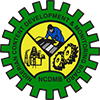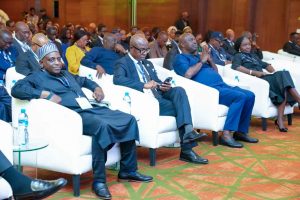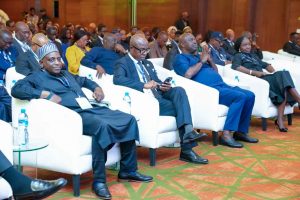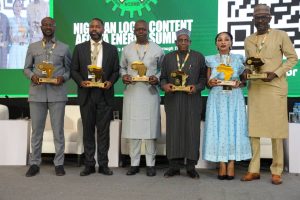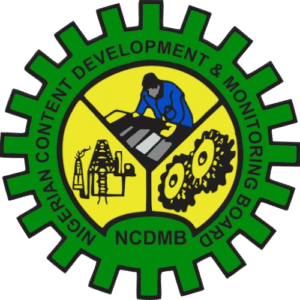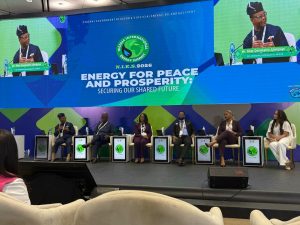Coming from an international oil company, many would expect that he will have bias for the segment. But the Nigerian Content Development and Monitoring Board (NCDMB) Executive Secretary/Chief Executive Officer (CEO), Mr. Simbi Wabote, has promised not to compromise on local content development matter. In this interview with Assistant Editor EMEKA UGWUANYI, Wabote unveils his plans to create value and empower more indigenous firms.
What new strategy do you have for the NCDMB?
When you have a new helmsman in any establishment, the first thing people will want to know is what difference you will make, and what your strategy for going forward is. I’m an engineer and worked for Shell for 25 years and rose to the position of a director. One thing my engineering knowledge teaches me is that you have to plan before you enter into execution. While we will focus on some quick wins to ensure continuity and to maintain the relevance of NCDMB, I think the first thing we need is to first of all take stock of how we have been able to implement the Act for the past six years and ask ourselves how well we have fared. Based on that stock-taking, we will set a baseline and pencil down the things we will pursue in the next four years that I will be in this position. First of all, we will continue the quick wins and, secondly, take a strategic look at how the Act has been implemented in the past six years and begin to strategise on the areas to strengthen, and the things we need to do that will change the face of the game. That, to me, is the strategic approach, which I will follow during my tenure. I’m sure the review of the Nigerian Content we intend to do will be very short and work is already ongoing. After that review we will set a very clear strategy direction, but in the short term, we will build on some of the successes that we have seen in the implementation of the Act. Some of these are the development of the pipe mills that we promised Nigerians that we will develop in-country, the development of our oil and gas parks to encourage manufacturing, and also the encouragement of local businesses to set up shops to manufacture for the industry. We will also look at the research and development (R&D) agenda that we have within the Act. A lot of work has been done, stakeholders had been engaged and some kind of regulation has been agreed on in terms of research and development. We will make sure we get quickly into the implementation phase. But like the Minister of State for Petroleum Resources, Dr Ibe Kachikwu, charged the Board, it is to think deep on the things we want to bring about in Nigerian Content to change the face of the game. So, our ambition will be very big, and robust, and the conscientious execution of that ambition.
What is the worth of the Nigerian Content Fund? How much has been disbursed and how many companies have benefited from it?
This is the question that bothers the minds of key stakeholders because the Nigerian Content Fund is what they started contributing since 2010, when the Act was enacted. I must say that the fund has grown over the years. There is about $600 million in that Fund. I mean functional dollars. As far as I’m aware, this Fund has benefited about six Nigerian companies that have tapped into it for capacity development. But I must say it is not directlygiving money to the six Nigerian contractors, it is about guaranteeing some of the loans they got from the banks because we are not a funding institution. So, we guarantee the loans they got from the banks. Not so much has been expended from that fund for capacity development, and part of the strategy of this new Board is to come out with a very transparent process with which genuine Nigerian contractors involved in the oil and gas sector will have access to the Fund. That is the strategy we will develop in the shortest possible time, to bring about transparency because most of the Fund contributors are asking questions about the Fund and we are not oblivious of that. We will make that position very transparent as soon as possible. One important thing, again, is the establishment of the governing council of the NCDMB, which was inaugurated on November 18, 2016 by President Muhammadu Buhari. That will bring corporate governance principles in the management activities of NCDMB and also support us in terms of the strategy we wish to deploy for Fund management.
What will the board do about the upstream companies that don’t contribute to the fund?
While the people who contribute to the Fund worry about the Fund, there are a lot of Nigerian companies that are not meeting up with the contribution as enshrined in the law. So, this Board will look at strategies with which we will make them comply with the provisions of the Act. Such companies might not be contributing out of ignorance or not understanding the implications of not doing so, and the mechanism to do those contributions. We are looking at those processes and within the shortest possible time, we will reach out to all those companies that are not contributing to the Fund and make them comply with the laws of the land. But having said that, I think it is also important to give them comfort that the Fund will be judiciously utilised for what it is meant.
Some operators complain about the cumbersome process of accessing the Nigerian Content Fund. What will you do to ease access to the fund?
I think it is not about the cumbersome process, but it is about the fact that there is no transparent process in accessing the Fund. I don’t think people have applied conscientiously for that Fund to do business with because the process is not clear to them, it is a bit opaque. That’s why I said this Board would bring about transparency and by the time we finished with the strategy, it would be published in various newspapers and other news media. Stakeholders will be engaged in the process we will follow to access that Fund. So, I don’t think people have really submitted their applications or shown their intentions from what I have seen. Probably there is no clarity and no understanding of the process to access the Fund, but we intend to bring about that transparency within the shortest possible time.
There has been heated debate over the review of some of the provisions of the Act, and what constitute a Nigerian and an indigenous company. Can you throw more light on these issues?
Like any legislation in this country or other parts of the world, it calls for review from time to time. I know there was an attempt by the House of Representatives to review the Local Content Act. In the process, all stakeholders decided to make their input of what they think the Act should look like, having operated it over time. I think one of the contentious issues with regard to the proposal for review is the ownership of equipment by indigenous companies. The Act stipulates 51 per cent ownership by Nigerian or indigenous companies because it was used interchangeably, but the proposed amendment, which I think at the moment, has not progressed too far, want those ownerships to be 100 per cent. I think the Board does not align with that position because we believe that in a global environment, you need to continue to encourage foreign investment in the country, partnerships, formation of consortium, businesses to distribute their risks in a way that if there is a downturn in the economy as it were today, the fall in oil price, no one company bears the total brunt of the impact. It is also a world that believes in interdependency and Nigeria will continue to collaborate and work with foreign countries and companies to enhance our capacity in local content.
Can you explain more the 15-day approval limit to ensure reduction of the contracting cycle time?
Contracting cycle time is of great concern not just to the international oil companies (IOCs) but also to NCDMB and some of our sister regulatory agencies because it increases the cost of doing business and it delays investment decisions. The Minister of State for Petroleum Resources charged all agencies in the oil and gas industry to ensure that they reduce the contracting cycle time as much as possible. In fact, he gave a benchmark of six months as a turnaround time for contracts. I think all the agencies are working on this to come out with a strategy with which they will reduce the contracting cycle time. One of them that NCDMB will adopt is to give a timeline within which if what is required of us is not received by the operators or project promoters, which is within 15 days, the operator or project promoter should consider that the item has been approved. I think we are drawing a line in the sand. I think that is a bold step and all my colleagues within the Board are aware of this and are working conscientiously to ensure that the turnaround time is drastically reduced for those items that are within our control. But it is not only NCDMB that gets involved in the contracting process in the oil and gas industry. We are working with other agencies to understand where the challenges are, but, on the other hand, we also challenge the project promoters and operators to also keep their house in order. We have also seen that the bulk of the delay is also on their part. For instance, when I took over office, I received a letter that NCDMB has approved six months earlier for a particular operator but the operator was asking for a further review. I’m sure once the operator gets that approval, the story might not get to the public that it was their fault but the operator might push the delay back to NCDMB.
Many agencies as, you said, are involved in this contracting cycle job and all of you work for the government, from the Board to NAPIMS, I mean multiple regulators. Can’t one agency do the job?
It is important to clarify the role of the different agencies. NAPIMS is not a regulator. It is a joint venture partner with oil and gas operators, hence they hold a critical stake in the business that the operators undertake. They have joint operating agreement, which they have negotiated with the various operators, on the role they play in the contracting cycle. But NCDMB is a regulator, it regulates NAPIMS. In every country, there are different arms of government that undertake different activities. It is the same government that set out regulations to check some of their activities. An example is the Central Bank of Nigeria (CBN), which ensures that banks’excesses are curtailed. In the same manner, the NCDMB ensures that local content is adhered to in the oil and gas industry.
The indigenous operators complain about the award of jobs to foreign firms and influx of expatriates into the oil and gas industry and these are where Nigerians have capacity. How do you intend to tackle this?
Local content is not a sprint, it is a marathon. It is not something that will happen in a year or two or even in five years, it is a continuous process that needs focus and tenacity to ensure that it is implemented. A lot of steps have been taken in terms of local capacity development to replace expatriates that come into the country to work. The media should also portray to the world efforts and achievements recorded by Nigerian Content. Today, most of the IOCs are being managed by Nigerians. This was not there some eight years ago when expatriates were the managers. In addition, about 90 per cent of employees of these IOCs are Nigerians. So, a lot of progress has been made in that area. Most of the owners of the oil blocks (oil mining leases) are Nigerians. This never existed seven years ago. A lot of progress has been made in various areas. So, what I mean is that Rome was not built in a day. We will continue to push the boundaries, do anything we can to improve local content attainment in the oil and gas industry. I think we also need to look at the positive side of it and not think we can eliminate expatriates within our midst overnight. Don’t forget that I came from an IOC. I know within those IOCs a lot of Nigerians are outside in various countries giving their expertise to those countries. So, from where I came (Shell), there are more Nigerians outside the country than expatriates in the country to strike that balance. I think the media should also look at the other side of the development because we also need Nigerians to go out to acquire the technical knowhow and knowledge, come back and make inputs to further develop the country.
Nobody is contesting your competence, but coming from the IOC, there are concerns you will have sympathy for IOCs when there are issues. What will you do to strike a balance here?
It has not just been a concern outside this wall, even my members of staff are also wondering on whose side I will be, having come from the IOC. But I think I’m first a Nigerian before I worked for the IOC. I also managed local content from the company I’m coming from for eight years, both locally and internationally. They know my antecedents; where I stand on issues that concern Nigeria and on issues that concern my employer then, which was Shell. I believe passionately in the benefits of local content, which I think Shell as an organisation also saw the benefits. This is so because I believe in the long run that local content will reduce the cost and ensure the security of supply. For example, today in the Niger Delta where you have all the militant activities going on, it is Nigerians that are working there. If we didn’t build local capacity, I think most of the oil companies would have packed up by now. Secondly, local content secures the life and properties of investors because there is no security you can get that is better than the community people. The benefits of local content are enormous. Shell is really pushing for the benefits of local content hence, they allowed my voice for local content to passionately exist. Now I’m working for the government to further enhance the development of local content in the oil and gas industry. I believe in the administration’s drive to create jobs and develop capacity; therefore, I cannot compromise on local content because I came from the IOC.
Discover more from Nigerian Content Development & Monitoring Board
Subscribe to get the latest posts sent to your email.


